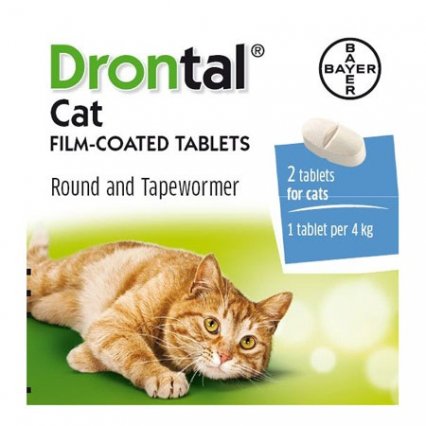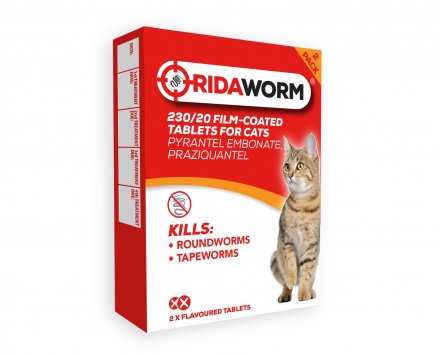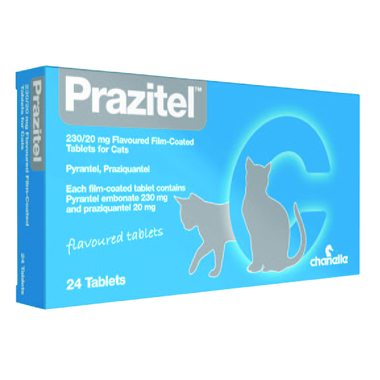Vetpharmacy.co.uk Cookie Policy : We use cookies to enhance your user experience. To find out more please view our cookie policy
Your Complete Guide to Worming Your Cat
No one likes to think about worms – encountering our underground friends is not something many of us enjoy, but they’re nothing compared to internal worms! However, it’s essential to be aware about how your cat can get worms and how you can prevent worms from ever becoming a serious issue for you and your beloved feline. Today, we’ll guide you through everything you need to know about worming (also called deworming) your cat.
Why is worming your cat important?
Worming your cat is essential to keep your cat free of the internal parasite known as worms. There are two types of worm your cat is likely to pick up: roundworms and tapeworms, both of which can be passed onto you (though the passing of tapeworms from cat to human is rare).
Initially, your cat likely won’t show any symptoms of worms, but they can severely impact your cat’s health if the infection becomes severe. Symptoms can include weight loss, diarrhoea, anaemia, and vomiting. Infected kittens can even experience growth difficulties and/or be sickly because the worms prevent the kitten from absorbing essential nutrients from their food.
How do cats get worms?
Kittens can become infected with worms through their mother’s milk, so it’s important to deworm all kittens as soon as they’re old enough. Cats can also be infected with worms via flea eggs or ingesting an infected flea, so if you’re treating your cat for fleas, it’s important to give them a wormer, too.
Here in the UK, most cats are indoor-outdoor cats, meaning they can come and go as they please. This gives cats a big opportunity to come into contact with other animals who may have worms.
How often should I deworm my cat?
If your cat has recently had kittens, you should deworm the kittens when they reach 4, 6, and 8 weeks old, and then at 4 and 6 months old. Once your cat becomes an adult, it’s recommended to deworm your cat every 3-4 months. If your cat is a prolific hunter that eats what it kills (such as mice), you may need to worm more often, so reach out to your vet to see what they recommend.
Do I need to worm my indoor cat?
It’s recommended to regularly worm your indoor cat even if they don’t have any contact with animals that go outside. Speak to your vet for personalised advice, but worming once every 6 months will help your cat stay worm-free. If your cat gets fleas, make sure you deworm them as fleas can bring worms along for the ride.
If you are wondering about protecting your smaller animals from worms, you can find more information in our latest blog post:
What are the best cat worming tablets?
There are 3 different cat worming tablets we recommend:
1. Drontal Cat Film-Coated Tablets – these tablets treat roundworm, tapeworm, whipworm, and hookworm, which can be easily transmitted from foxes to cats. These tablets are extremely affordable and one tablet treats 4kg of bodyweight. Get them here:
2. Ridaworm Film-Coated Tablets for Cats – these tablets treat roundworm and tapeworms, and the tablets are flavoured for palatability.
3. Prazitel Flavoured Film-Coated Tablets for Cats – these tablets treat roundworm and tapeworm and are the most budget-friendly choice. You can buy them here:
The best way to protect your cat from worms is to get into a good routine and worm your cat regularly. Simply put it on your calendar to order your cat worming tablets and worm your cat at the same time every three months, and you and your cat will never have to deal with an unwelcome infestation.
This blog post was written on behalf of Vet Pharmacy by Pharmacy Mentor.






